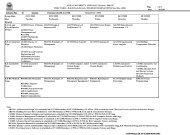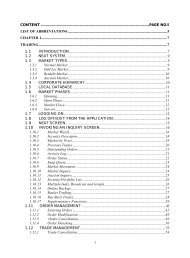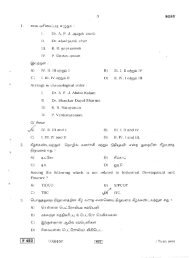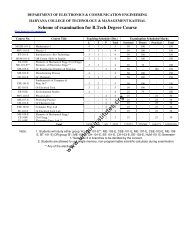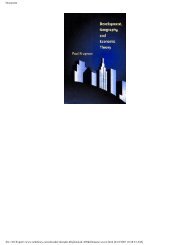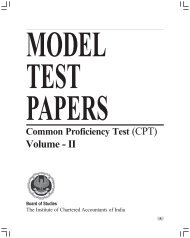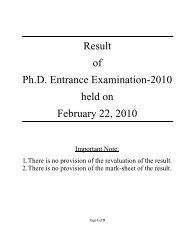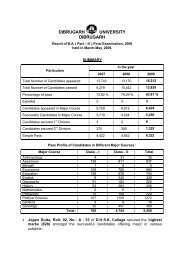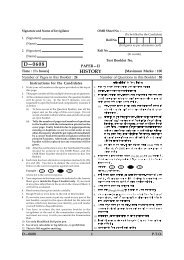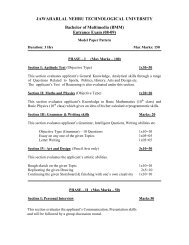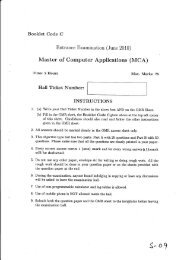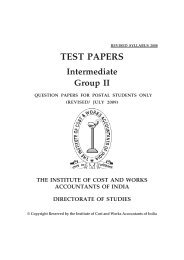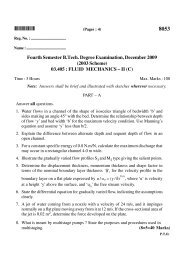UNIT – I Lesson 1 HRM – AN OVERVIEW Lesson Outline Nature of ...
UNIT – I Lesson 1 HRM – AN OVERVIEW Lesson Outline Nature of ...
UNIT – I Lesson 1 HRM – AN OVERVIEW Lesson Outline Nature of ...
You also want an ePaper? Increase the reach of your titles
YUMPU automatically turns print PDFs into web optimized ePapers that Google loves.
could be the causes <strong>of</strong> residual effects on people. Stress could be reactive to specific<br />
situations or endogenous or in born in certain people who are more vulnerable to stressors.<br />
Handling persons with high levels <strong>of</strong> stress is a challenge for every Human<br />
Resource pr<strong>of</strong>essional. Over the years, management practitioners have evolved the<br />
following formula for handling persons with stress:<br />
• Being attentive and use effective listening as a step towards building rapport with<br />
the person who expresses symptoms <strong>of</strong> stress.<br />
• Allow the affected person time to ventilate his or her feelings freely.<br />
• Acknowledge even small degree <strong>of</strong> truth in what the person is saying.<br />
• Demonstrate your understanding and empathy towards the victims.<br />
• Encourage their participation in caring, supportive relationships<br />
• Help the people to interpret difficulty and change as a positive challenge or<br />
opportunity rather than a life-threatening tragedy.<br />
• Build confidence in their abilities to master difficulties and challenges that might<br />
come along.<br />
• Strengthen their beliefs in universal and everlasting values and ideals.<br />
• Re-create their perception <strong>of</strong> being in control by making them realize their ability<br />
to influence the events around them and / or their reactions to them.<br />
• Enable them to respond constructively and objectively to their life’s events.<br />
• Help persons with stress to generate innovative and situation-specific solutions to<br />
difficulties and dilemmas.<br />
Rational thinking, realistic self-talk, reexamining assumptions and beliefs being<br />
held for a long time, praying, solitude and contemplation, being in nature, reading and<br />
writing, hypnosis, bio feedback and auto suggestion, music, yoga, hydrotherapy, massage<br />
and humor are some <strong>of</strong> the need-based stress management strategies advocated by<br />
organizers <strong>of</strong> workplace wellness programs all over the world, to recuperate employees<br />
from their anxiety producing work situations. Engaging in voluntary, intrinsically<br />
satisfying and socially sanctioned leisure experiences and recreational activities during<br />
one’s free time is found to be a sound antidote to stress, as it rejuvenates a person and<br />
compensates for the energies lost at work. Whatever be the nature <strong>of</strong> the programs<br />
conducted to help people against stress, they are aimed at goals like low illness risk,<br />
maximizing energy for daily living, enjoyment <strong>of</strong> daily lives, continuous development <strong>of</strong><br />
one’s abilities and commitment and responsibility towards the common good.



